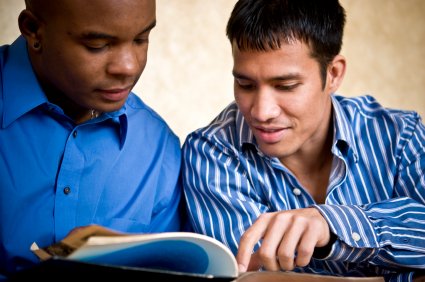As winter is drawing to a close and we start to feel the warmth of spring it is a great time to put into practice healthy recovery behaviours that are important in maintaining long-term recovery such as sponsorship. Obtaining and retaining a sponsor after treatment and continuing with twelve step principles is an important first step.
Whether you are in early recovery or in recovery for a long-time the following are common questions and answers persons in recovery ask about sponsorship. The following information is referenced with permission from authour Hamilton B, Twelve Step, Sponsorship and How it works. 1996, Hazelden.
“Sponsorship is one of the greatest adventures and greatest rewards of Twelve Step Recovery”.
Why do I need a sponsor if I’ve been in recovery a long time?
No matter how long you’ve been clean, sober or abstinent you never stop working the steps. And you need another person to help you work the steps, even when you’re an old-timer. Twelve Step programs are based on staying clean, sober or abstinent one day at a time. In one sense, nobody has more than a day of recovery; we are all just one drink, one drug, or one behaviour away from a slip. No matter how long we have been in recovery, we still need someone to talk things over with. We still need that experience, strength, and hope that keeps us applying the Twelve Steps and living by their principles.
Do I have to do what my sponsor says?
If you think your sponsor is wrong, tell him or her so and discuss the issue.
Sponsorship styles vary significantly from person to person. Some sponsors are more strict than others; some are more inclined to offer advice, make demands, or give orders. For some people new to recovery, being told what to do may work. For others, it does not. If your problem with your sponsor stems from his or her style rather than from one or two specific suggestions, discuss this issue. If your sponsor’s style is to tell you what to do rather than offer suggestions or share his or her experience, strength and hope, you have a right to bring this observation up. While your sponsor may guide your recovery program, it is not his or her responsibility to run your life.
What if I can’t reach my sponsor when I need him or her?
Call someone else you know in the program, or someone you don’t know. Sponsors are important to us, but they have no special powers.
Like other program members, they can only share their experience, strength and hope. In an emergency, any program member can do the same.
Carry a list of Twelve Step members telephone numbers in your wallet or purse to use in an emergency. If you don’t have a list with you, call the Intergroup or Central Office in your community if you’re in AA, or its equivalent if you’re in another Twelve Step Fellowship. These telephone numbers are often available from directory assistance. If you can’t get hold of your sponsor in an emergency call anyone in the program.
Some factors to consider in choosing a sponsor:
- Has what we want
- Lives in the solution
- Walks the talk
- Has a sponsor
- Emphasizes the Steps
- Has more time in recovery than we do
- Has worked more Steps than we have
- Is available for telephone calls and meetings
- Emphasizes the spiritual aspect of the program
- Is the same gender
Remember to take your time choosing a sponsor. “A sponsor can help us to achieve a richer, deeper more enjoyable recovery than we are likely to find on our own”.
Establishing healthy relationships and trust in others is sometimes difficult to do especially if our past experience with others in active addiction has been one negative experience after another. We seek treatment with the intention of changing our lives and after treatment we are given the tools on what works.
The disease of addiction is a progressive disease; obtaining a sponsor and continuing with twelve steps is a process. Therefore working with a sponsor encourages the continuation of a recovery program.
A Sponsor teaches and understands the language and principles of what a recovery program entails because they have been through the process. They help their sponsees to understand the program more quickly and encourage recovery behaviours as well as the importance of fellowship. They also monitor your progress, confront self-sabotaging behaviours and generally guide a sponsee to stay focus.
Recovery cannot be done alone or in isolation; it involves fellowship, continuous self-examination and a willingness to change. Please remember to submit articles or ideas for future updates.


Johannes Moseki says:
Is there any possibilities that you could helps me to find sponsorships for a young addicted boy whose very much dangerous to her Grantmother when he doesn’t have money to buy drugs.